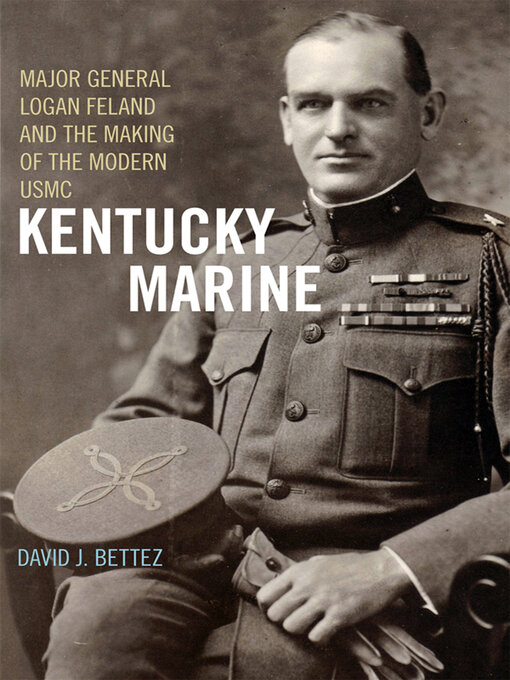- Sports
- Popular Magazines
- News & Politics
- Revistas
- Home & Garden
- Cooking
- Cars & Motorcycles
- Celebrity Gossip
- Art & Architecture
- Just Added Magazines
- See all
-
Description
-
Details
Winner of the Marine Corps Heritage Foundation's Colonel Joseph Alexander Award
A native of Hopkinsville, Kentucky, Major General Logan Feland (1869-1936) played a major role in the development of the modern Marine Corps. Highly decorated for his heroic actions during the battle of Belleau Wood in World War I, Feland led the hunt for rebel leader Augusto César Sandino during the Nicaraguan revolution from 1927 to 1929—an operation that helped to establish the Marines' reputation in guerrilla warfare and search-and-capture missions. Yet, despite rising to become one of the USMC's most highly ranked and regarded officers, Feland has been largely ignored in the historical record.
In Kentucky Marine, David J. Bettez uncovers the forgotten story of this influential soldier of the sea. During Feland's tenure as an officer, the Corps expanded exponentially in power and prestige. Not only did his command in Nicaragua set the stage for similar twenty-first-century operations in Iraq and Afghanistan, but Feland was one of the first instructors in the USMC's Advanced Base Force, which served as the forerunner of the amphibious assault force mission the Marines adopted in World War II.
Kentucky Marine also illuminates Feland's private life, including his marriage to successful soprano singer and socialite Katherine Cordner Feland, and details his disappointment at being twice passed over for the position of commandant. Drawing from personal letters, contemporary news articles, official communications, and confidential correspondence, this long-overdue biography fills a significant gap in twentieth-century American military history.

Kindle Book
- Release date: June 29, 2021
OverDrive Read
- ISBN: 9780813144818
- Release date: June 29, 2021
EPUB ebook
- ISBN: 9780813144818
- File size: 5804 KB
- Release date: June 29, 2021
Open EPUB ebook
- ISBN: 9780813144818
- File size: 5631 KB
- Release date: June 29, 2021
Formats
Kindle Book
OverDrive Read
EPUB ebook
Open EPUB ebook
Languages
English
